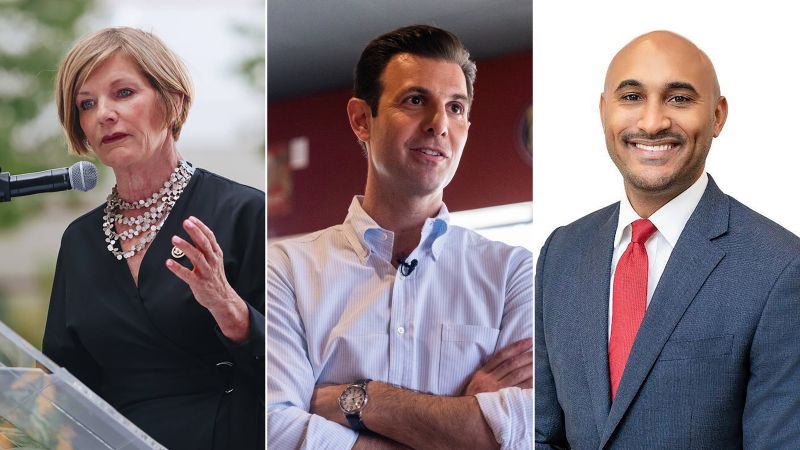Democratic Rep. Susie Lee of Nevada is facing a tough reelection battle in a competitive House race. Despite the increase in volunteers and enthusiasm in her district after Vice President Kamala Harris became the Democratic nominee, Lee remains focused on hyper-local issues and maintaining a distance from the top of the party ticket. Other Democrats in competitive races across the country also feel a surge in energy but are still keeping their campaigns centered on local issues rather than aligning more closely with Harris.
In Arizona, former legislator Kirsten Engel is trying to flip a Republican district on the US-Mexico border, with grassroots enthusiasm inspired by Harris. Despite seeing Harris as an effective advocate for abortion rights, Engel remains critical of both parties’ handling of border security and immigration reform. Candidates are distancing themselves from their party’s stance on the border regardless of who is at the top of the ticket, pushing back against Republican attempts to label Harris as the “border czar.”
In Pennsylvania, Democratic candidates are grappling with questions about Harris’s previous position on banning fracking, a key issue in battleground states. While Harris has clarified her stance on fracking, candidates acknowledge the need for her to build relationships with key unions and constituencies. Republicans have seized on Harris’s past positions, including on fracking, to target Democrats in competitive races, though some have resorted to personal attacks rather than policy critiques.
Some Democrats, like Rudy Salas in California, see campaigning with Harris as less crucial to their campaigns and plan to focus on local issues. Others, like Will Rollins in California, see Harris as a valuable asset due to her background as a prosecutor and employ similar messaging in their campaigns. The surge in donations and enthusiasm following Harris’s nomination is evident in Rollins’s increase in social media following and ability to hire additional support for his campaign.
Minnesota Governor Tim Walz, on the other hand, is seen as a valuable partner by down-ballot Democrats in competitive races. Walz’s background in education and business, along with his experience as a governor, makes him a popular choice for Democrats to campaign with. It is argued that his approach to politics is centered on “meat-and-potatoes” issues, bringing stability and communication skills to the party.
The historical significance of Harris’s nomination as the first Black and South Asian woman on a major party ticket is driving enthusiasm and turnout among Democrats across the country. With Harris providing fresh energy to the party and relieving concerns about Biden’s age and electability, candidates are seeing increased support and engagement from volunteers. The grassroots enthusiasm is translated into increased door-knocking efforts and a surge in campaign volunteers, highlighting the impact of Harris’s candidacy on down-ballot races in key battleground districts.


